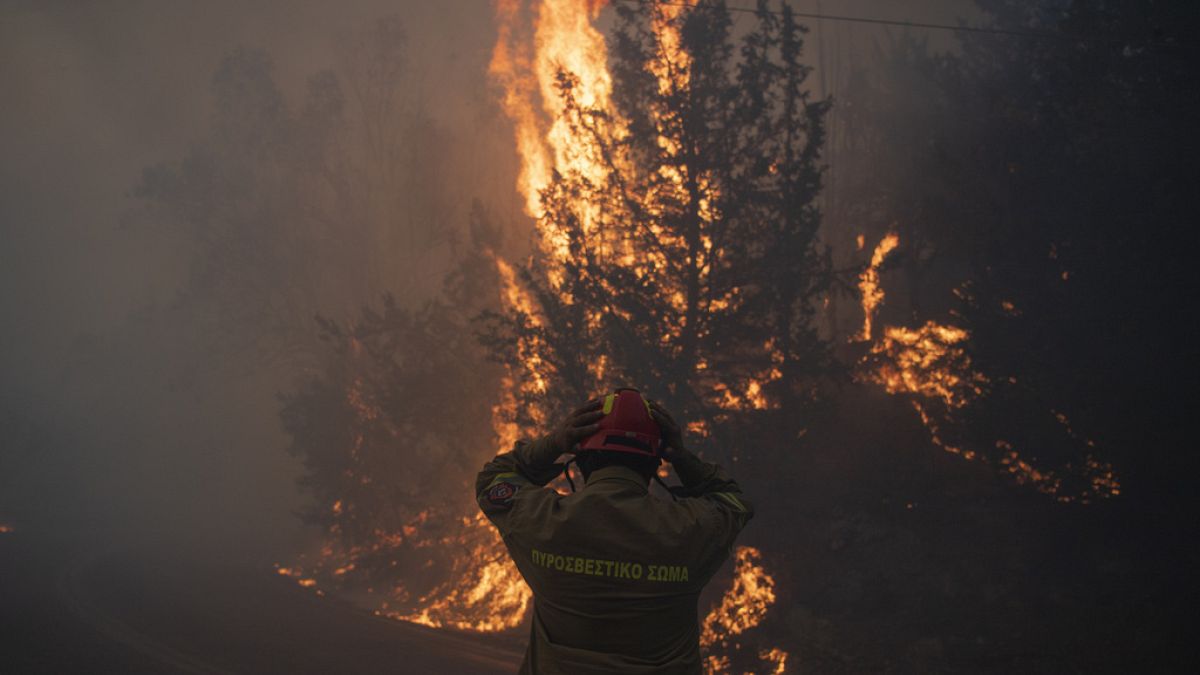A massive wildfire is raging just outside Greece’s capital, prompting authorities to triple the number of firefighters deployed to contain the blaze. The fire, located 44 kilometres north of Athens, has caused the deployment of roughly 670 firefighters, along with 30 water-dropping planes and 180 vehicles. Strong winds have created dangerous conditions, with some flames reaching up to 25 metres tall. The difficult-to-reach mountain areas have made it challenging for firefighters to contain the blaze, which has been burning for more than 20 hours.
Evacuation orders have been issued for more than a dozen areas, including Marathon and several Athenian suburbs. Greek Prime Minister Kyriakos Mitsotakis has returned from his holiday to assist in coordinating the firefighting efforts. Several establishments, including hospitals, monasteries, and children’s homes, have been evacuated. Authorities have issued a “red alert” for wildfires due to weather conditions expected until Thursday, with half of the country under high wildfire hazard.
Wildfires are a common occurrence in Greece during the hot, dry summers, but authorities attribute the increase in size and frequency of fires to climate change. In recent years, large wildfires have caused significant damage and loss of life. In 2018, a fire in Mati killed over 100 people, while wildfires in 2019 claimed the lives of more than 20 individuals. Despite firefighting efforts, wildfires continue to pose a threat to both residents and the environment.
In response to the ongoing wildfire crisis, Greek authorities are working to expand prevention and suppression measures to effectively combat future blazes. The fire department is emphasizing the need for increased resources and improved coordination among local policymakers to address the challenges posed by wildfires. Climate change is exacerbating the wildfire risk, prompting the government to take proactive steps to protect communities and natural habitats.
The current wildfire situation in Greece serves as a stark reminder of the devastating impact of climate change on the country’s landscape and population. As extreme weather conditions become more frequent, the Greek government must prioritize adaptive strategies to mitigate the risk of wildfires. Cooperation among firefighters, authorities, and residents is crucial in responding to emergencies and safeguarding lives and property from the destructive force of wildfires.
In conclusion, the Greek wildfire near Athens underscores the urgent need for enhanced wildfire management strategies and climate change adaptation measures. With the support of additional resources and improved coordination, authorities can better address the growing threat of wildfires in Greece. By prioritizing prevention, preparedness, and response efforts, the country can minimize the impact of future wildfires and protect both people and the environment from harm.










